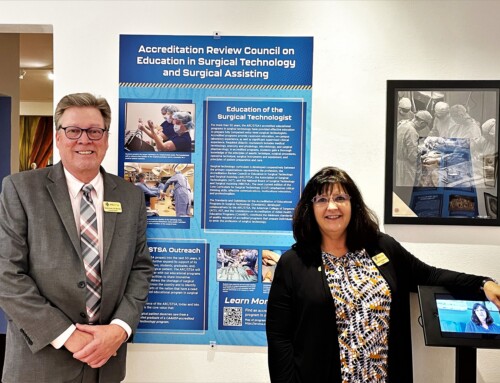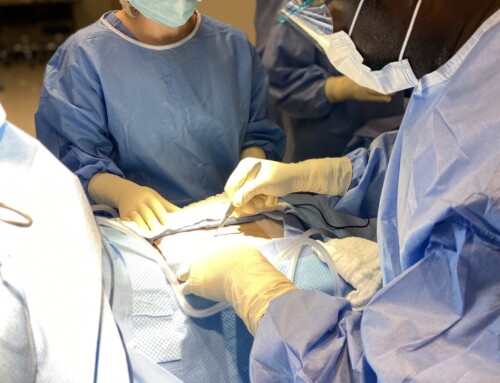Interviews by Connie Bell, CST, FAST, and Javier Espinales, MEd, CST
The ARC/STSA Board of Directors recently welcomed two new members, Eboni Saurage, EdD, CST, and Jay Chambers, BS, CST. Saurage is a surgical technology educator with more than 15 years of experience as a certified surgical technologist working as a program director at Baton Rouge Community College. Chambers has been in the medical field for much of his professional career, starting in sub-acute rehabilitation before transitioning into the surgical technologist subset, eventually becoming an assistant professor and clinical coordinator at Nashville State Community College.
Get to know more about Saurage and Chambers, as well as what they look forward to as board members, below.
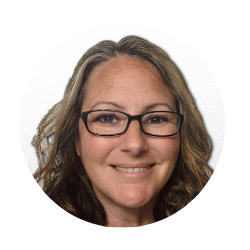
Eboni Saurage, EdD, CST
Interview by Connie Bell, CST, FAST
Tell us about yourself and what drew you to the profession.
I like to tell people the profession found me. I found my way to surgical technology after years of switching majors in college. I knew I could complete an associate degree before changing my mind. The constant opportunities to learn something new and perfect processes kept me interested.
After completing my associate degree, my instructor encouraged me to pursue my bachelor’s degree. I had no intentions of entering education, but I was invited to join the faculty at my alma mater part time, which eventually lead to a full-time teaching position, then clinical coordinator and program director. My teachers, mentors and coworkers provided me with the foundation I needed to enter all these positions. Looking back, I realize how lucky I was to have the opportunity to grow into my role as a program director and have amazing role models to emulate.
As I became a program director, I had the opportunity to complete my master’s degree in academic administration and, upon the suggestion of my son, I returned to school a couple of years ago for my doctor of education in health care education and leadership, which I completed at the end of July.
What are you looking forward to during your term on the ARC/STSA Board?
I look forward to learning and building relationships with other like-minded surgical technology and surgical assisting leaders, as well as being of service to our community. I want to ensure those who pursue the profession of surgical technology and surgical assisting can reach their career goals through quality education. I think the only way that is possible is by providing our educators, especially those new to the field, with the necessary resources to make such a goal come to life.
What is one challenge program directors face today, and how can we as a community come together to support each other?
Program directors face so many challenges — student recruitment, clinical site capacity, time to juggle it all and ongoing program justification to college administration, to name a few. We should recognize that even though we are separated by miles, we don’t have to face these challenges alone.
Participating in surgical technology educator events provides the perfect platform to build a network needed to support program directors and educators. As an experienced educator, reaching out to new educators and program directors to let them know they are not alone and they don’t have to reinvent the wheel is also important. Providing that platform for new program directors and educators from the start can support the ongoing growth needed for the future of surgical technology education.
Lastly, accreditation also provides the extra support needed to take on some of the challenges of being a program director. Anytime I have had a “larger than me” issue to tackle, I have been able to reach out to ARC/STSA and a staff member was available to walk me through it. It is comforting to know we have that level of support behind our accredited programs.
Think back to when you first entered the profession. What advice would you give yourself, knowing what you know now?
The number one thing is self-care. It is important to be helpful, but it’s more important to take care of yourself so you can continue to assist others.
Number two is to make connections. I couldn’t do what I do without the help of those around me. I only hope I can continue to recognize the influence I have on others and make the most of it.
I’d also tell myself to keep growing, as you never know what doors may open in your future — be prepared to walk through them. My education is so much more than my job and career; it has prepared me for a future I didn’t even know existed. Get involved, as this profession is what you choose to make of it.
Lastly, plant seeds, as the results of what you do as an educator are rarely immediate. Enjoy the journey while it lasts, knowing the seeds you plant along the way are important. Some may take longer to sprout than others, but having the opportunity to sit back and see how far they grow is one of the most rewarding experiences.
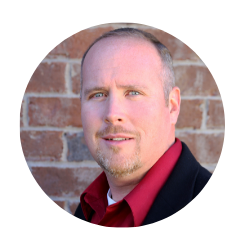
Jay Chambers, BS, CST
Interview by Javier Espinales, MEd, CST
Tell us about yourself and what drew you to the profession.
I have been in some aspect of the medical field for much of my professional career. I graduated with a degree in recreational therapy and gerontology, and went into sub-acute rehabilitation. There I worked with an interdisciplinary rehabilitation team to help geriatric patients who suffered from a disability or injury return to some form of independence.
I’ve always had an interest in the operating room culture and the surgical environment but was drawn into the profession on a mission trip to Guatemala. I had a discussion with a church friend who is a general surgeon and was invited to observe several days of surgeries. What I saw in the teamwork during the surgical procedures and how the team helped the patient through the surgery hooked me into the profession. I enrolled in the surgical technologist program at Nashville State Community College. I enjoyed learning with my fellow classmates, helping them with their studies, and the family atmosphere and camaraderie in school and in the operating room. I continue to enjoy that today as a surgical technology instructor.
What interested you in joining the ARC/STSA Board of Directors, and what are you looking forward to during your term?
There has not been one specific moment, but many small moments that helped me make the decision to become a board member. I believe I will be able to help programs, and ultimately students, be better prepared for the profession by ensuring consistency in the accreditation process.
Being a new board member, I’m looking forward to understanding the accreditation process from a different aspect. This perspective will allow me to better serve other surgical technology programs and ultimately the professionals working so hard every day in the field. I fundamentally believe that ensuring the quality of our programs will lead to qualified graduates — and ultimately, the patient will be the benefactor.
What is one challenge program directors face today, and how can we as a community come together to support each other?
The challenges program directors face with the politics of education tends to be a time and emotional drain on many. What I’m trying to do is inform professionals of the academic mindset, who are not from the health care field, of the different management styles between health care and academia.
One area of management style that is different between academia and health care is in patient care. In health care, especially in the surgical environment, every decision made is based around the patient and the care involved to produce positive patient outcomes. Many times, there are fewer people involved in the decision-making process in the health care field than in an educational environment. This difference makes for a tough transition for new clinical professionals entering academia.
Think back on when you first entered the profession. What advice would you give yourself, knowing what you know now?
Rely on or seek advice from people with more experience, especially those who have gone down the same path. Realize you are not the first one to do this and you are not alone. Do not be afraid to ask questions. Do not be afraid to make mistakes and own up to them.
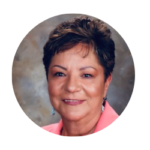
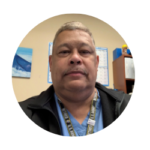
A special thanks to Connie Bell, CST, FAST, and Javier Espinales, MEd, CST, members of the ARC/STSA Editorial Advisory Committee, for conducting these interviews. Bell is the special projects consultant for surgical technology at Success Education Colleges – West Covina, California. Espinales is the director of the surgical technology program at Concorde Career College – San Antonio, Texas.


